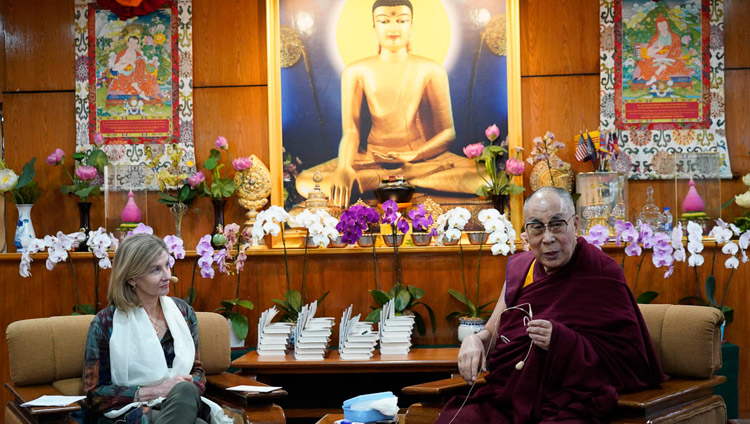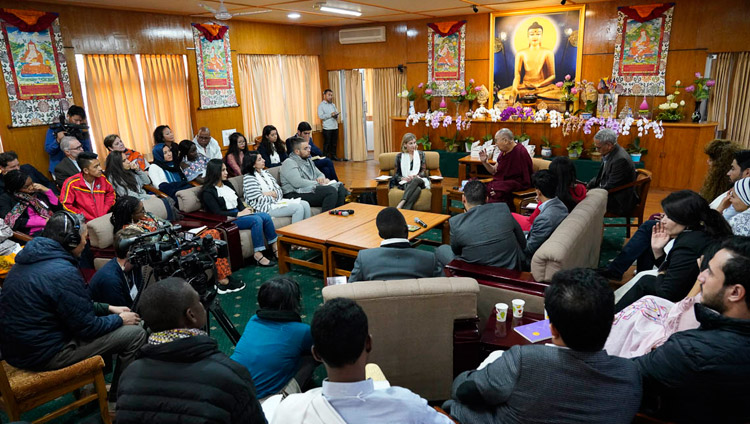A group of 27 youth leaders from conflict zones in 12 different countries have visited Dharamshala for a meeting with His Holiness the Dalai Lama.

His Holiness with USIP President Nancy Lindborg at his residence. Photo: Ven Tenzin Jamphel
The group visit was facilitated by the United States Institute of Peace (USIP), a nonpartisan and independent institution tasked with promoting national security and global stability by reducing violent conflicts abroad.Their exchange initiative began in 2016 and this is the third group they have brought to meet His Holiness. USIP President Nancy Lindborgled the group during their visit. The group participantswere from Afghanistan, Burma, the Central African Republic, Colombia, Iraq, Libya, Nigeria, Somalia, South Sudan, Syria, Tunisia and Venezuela.In their report of the meeting, Phayulquoted USIP as saying “The dialogue with the Dalai Lama will help the youngsters to build practical skills and personal resilience when they work against the tensions or violence in their homelands”.
Ms Lindborg asked the young people to introduce themselves and put their questions to His Holiness. The first, a delegate from Venezuela, asked whether it is possible to achieve peace when you have no freedom.“I met Chairman Mao several times”, replied His Holiness, “He behaved like an old farmer who’d become a revolutionary. I developed some respect for him[…] I was attracted then as now to his socio-economic theories, especially the notion of equal distribution.” He said that in the early years, “Chinese revolutionary leaders were really dedicated, but once they tasted power it seems exercising it became more important than ideology.”
His Holiness explained that in exile, he believes in focusing on the preservation of Tibetan culture and identity by educating Tibetan children and said that resorting to anger and violence is self-destructive and leads to harsher suppression, and that violence is the wrong method to bring about change. Nancy Lindborg responded, saying that USIP has evidence that non-violence is consistently more effective in the long run.
His Holiness continued,“We have to remember that each and every one of us is a part of humanity […]This kind of meeting gives me confidence that we […] can achieve change in the world. We can cause the seeds of good to grow.

His Holiness speaking to the youth leaders from conflict zones Photo: Ven Tenzin Jamphel
“Everyone wants to live a happy life”, said His Holiness, “But many don’t know how it’s to be done. In time, and with effort, we can change that.”




 Print
Print Email
Email